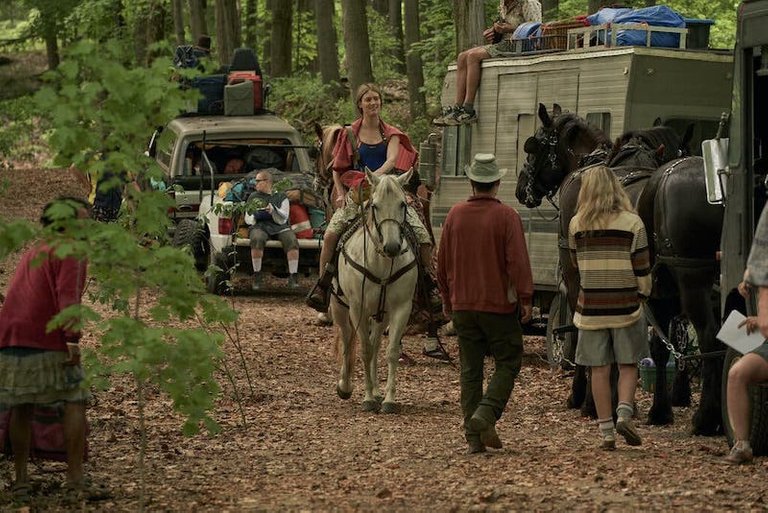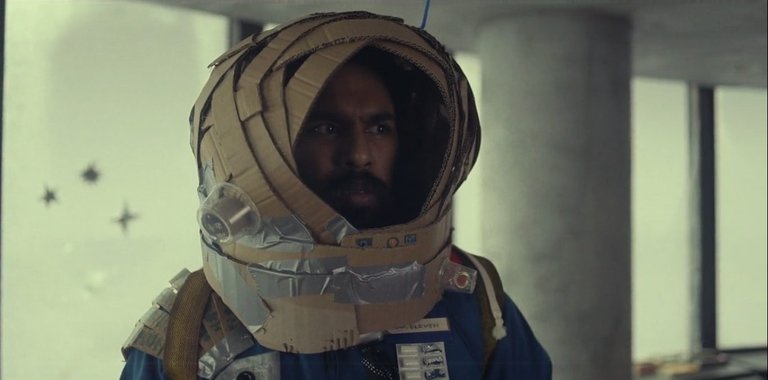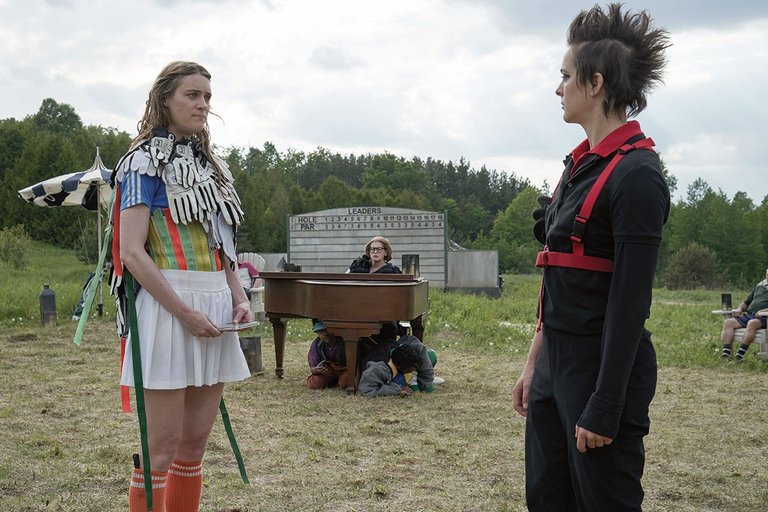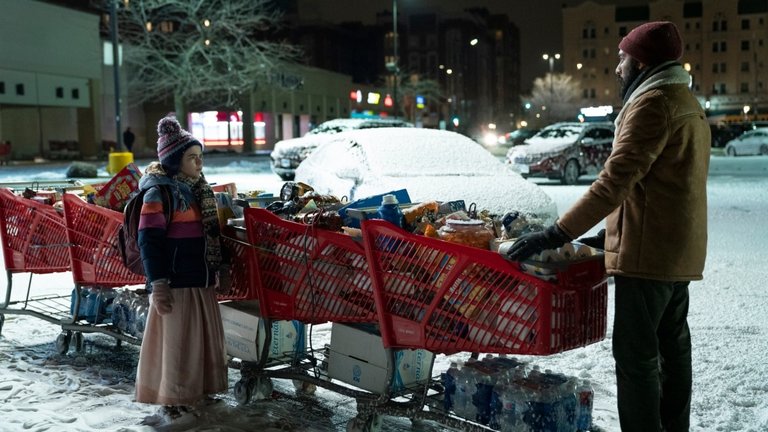Civilization as we know it gone, as the result of some cataclysmic event, most typically a pandemic. The handful of humans that remain use up the last pieces of material culture of depopulated urban zones, before nature reclaims it all slowly. There are conflicts and alliances, just as one would expect, but they are mostly centered around the one and only cause left fighting for: the mere survival.
Up to this point most apocalypse themed movies and TV shows appear very similar. In fact, if it weren't for that special twist, they all would be a seen-one-seen-all situation. Thanks to this twist, the miniseries Station Eleven stands out as an impressively complex mosaic of characters, connections, experiences, and imagery. In fact, I see it as a multi-layered work of art.
Multiple Connections Between Characters
Though it may not appear like that at first, all of the characters in this scenario are connected somehow, mostly indirectly, having to do with their lives before our civilization kicked the bucket. But how, in which way, and through which means...? To illustrate that it takes pretty much the entire length of the show. And even at the very end it is not entirely clear until you go back to think about it. While I normally don't like to rewatch the same show, Station Eleven is an obvious exception.
Chronology? What's That Good For?
That's right: the show does not follow a chronological sequence. In fact, it seems to revel in skipping back and forth in time, which most typically is not even indicated as anything more specific than "ten days before the play". What play? Gotta keep watching to find out! Though that may take a few more episodes before it's revealed. As a result, the viewer will find themself in a puzzle that needs to be pieced together, often having to guess what is not made immediately clear. After a while one gets used to giving up on speculating wildly, or even hoping for an answer at some point. However, by the end most loose ends are tied up, rewarding the dedicated puzzler with a sense of accomplishment.
So What Is The Series About?
Other than dealing with a post-end-of-the-world setting, it's about theater... among other things. The first episode starts out with one of the main characters dying of a heart attack on stage while playing King Lear. (Don't worry, there are enough scenes with him, since the story skips back and forth so much.) Decades later his young protege becomes part of a traveling troupe of actors, touring the post-pandemic Great Lakes region, performing Shakespeare plays. As a child she was obsessed with a graphic novel her actor friend gave her, full of symbolism that becomes valid throughout the whole series. The only other copy of this book belongs to the actor's young son, who is stranded at an airport when the pandemic hits. The traveling troupe is eventually facing a dangerous prophet, obsessed with the young people who have no recolection of the time before the pandemic.
The Proof of the Pudding...
Okay, I suppose this summary did more to confuse you than to offer an idea of the nature of this series. But in fact, that's what it actually is like! So if anything, all I did was sum up the general feeling I've had while watching it. It wasn't until I got close to the end, that I actually realized the immense beauty in this work. Just like when you're looking very close at a famous painting, and can't make heads nor tails of it until you take a step back. But to do that, you will need to sit through the ten episodes. It's totally worth it though! Here is another bit of an impression, in form of its trailer:





